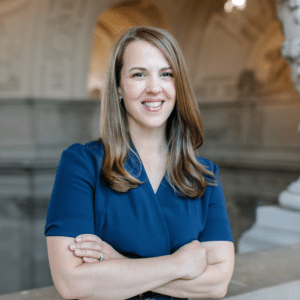By ProFellow Founder, Dr. Vicki Johnson
Most fellowships require one to three recommendation letters from people who can speak to your intellectual and professional accomplishments, as well as your personality. Many applicants simply take the instructions for the recommendation letter and flit them off to their chosen referees via email. However, if you want winning recommendation letters, there’s a much better way to guarantee success.
Example of instructions for recommendation letters from the Herbert Scoville Jr. Peace Fellowship application:
Two letters of reference. Each letter should address the accomplishments and standing of the candidate; the candidate’s interest and experience in peace and security issues; the candidate’s ability to communicate, both orally and in writing; the candidate’s maturity and judgment, and the candidate’s potential to make a significant contribution to peace and security issues. Signatures are preferred but not required.
To start, look closely at the instructions for the reference letters. Similar to my advice for developing a strong personal statement, I suggest you start by breaking down the question. As an example, I’ve broken down the reference letter question from the Herbert Scoville Jr. Peace Fellowship above. The highlighted phrases are:
- accomplishments of the candidate
- standing of the candidate
- the candidate’s interest in peace and security issues
- the candidate’s experience in peace and security issues
- the candidate’s ability to communicate orally
- the candidate’s ability to communicate in writing
- the candidate’s maturity
- the candidate’s judgment
- the candidate’s potential to make a significant contribution to peace and security issues.
You now have 9 “questions” and it’s important your referee answers each one.
Now think about who can answer these questions about you and would be willing to prepare you a positive letter. You should not ask for recommendation letters from people who have not worked with you in some capacity. Not only do you put those people in an uncomfortable position, but you’ll get a much better letter from someone who knows you. Letters from elected officials, university Presidents, CEOs, etc. are inadequate unless you have worked with that person in some significant way.
Also, rather than asking people who have worked with you in a similar way (two professors or two bosses) try to identify two or three people that have a different relationship to you: one person who can speak to your academic accomplishments, one who can speak to your professional development, one who can speak to your extracurricular activities, etc.
Now ask yourself this: what’s the guarantee that your referee will specifically answer all 9 of the questions above if you just send them the instructions? It’s zero. As someone who has written many recommendation letters for others, I can tell you that the inclination to brush over or skip one or two of these questions is high, especially when I have very little time to sit down and write a glowing letter from scratch. The best thing you can do is prepare some details and a letterhead template for each referee. By preparing some details for the referee to include in your letter you will increase your chances of getting a strong recommendation letter by tenfold.
Email each one of your potential referees and tell them about your intentions to apply for the fellowship, with some details about the fellowship and your project proposal if applicable, and politely ask for a letter of recommendation. Once you receive a confirmation from them, prepare a letter template for each one. Start by creating a business letter template in Word with the date and the fellowship organization’s address. Also insert “[on letterhead]” at the top of the page to indicate that the letter should be placed on the person’s letterhead. Also add the salutation (Dear) with the name of the person who the letter is being addressed to. If there is no specific contact for the fellowship, direct the letter to the head of the organization and be sure to include the correct title (e.g. Dr.).
In my next post, I’ll go into detail about the next part of the template.
Next up: Get a Great Recommendation Letter, Part 2

Dr. Vicki Johnson is Founder and CEO of ProFellow, the world’s leading online resource for professional and academic fellowships. She is a four-time fellow, top Ph.D. scholar, Fulbright recipient and an award-winning social entrepreneur. She is the Creator and Director of Fully Funded, an award-winning online course and mentorship program for graduate school applicants seeking to find and win full funding.
© Victoria Johnson / ProFellow, LLC 2012, all rights reserved.